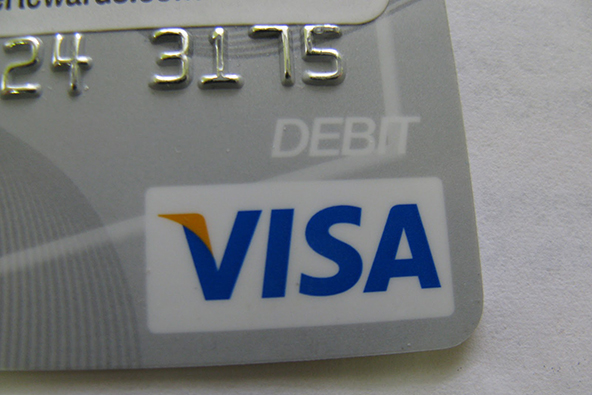What Is Good for Wal-Mart Is Not Necessarily Good for Americans

A UMass Amherst economics professor is arguing in today’s New York Times that the lowering last year of the debit card interchange fees — the portion of the card acceptance fees that is paid by the merchants and collected by the card issuers — was the right thing to do. The article is loaded with phrases that are sure to appeal to a large segment of NYT’s readership: “Wall Street dominance”, “fierce opposition from large banks”, “too big to fail”, etc. Furthermore, and for good measure, the article is chock full with statistics and references to outside sources (no less than 25!), lest we dare doubt the ineluctable conclusion.
And yet, for all her efforts, Nancy Folbre — the author — somehow fails to even mention the most conspicuous side effect of the Durbin Amendment — the part of the Dodd-Frank Act that led to the reduction of the debit interchange. In their effort to make up for the lost interchange revenue, the affected card issuers (financial institutions with assets of less than $10 billion were exempted) started charging higher fees for other services or introducing fees for services that were previously free. As a direct result, no big bank is now offering a free checking account and, overall, the cost of banking has increased. And this was all easily predictable and predicted, both on this blog and elsewhere! So how is that a positive outcome?
Interchange Fees and ‘Actual Cost’
Here is how Folbre describes the purpose of the legislation at issue and the fees it regulated:
The Durbin amendment of the Dodd-Frank financial regulation bill was intended to lower the interchange fees that banks collect on debit card purchases. These fees were considerably higher than in other countries, and far exceeded the actual cost, estimated by the Federal Reserve Bank at about 4 cents per transaction.
The “actual cost” thing is one of the amendment champions’ favorite arguments. You may recall that Sen. Durbin himself used to love to inform Bank of America and Wells Fargo what their cost of processing debit transactions was. He too was citing Federal Reserve data, however, at 7 cents per transaction, the senator’s figure was almost twice as high as the one cited by the professor. Neither has provided a link to the Federal Reserve report at issue.
But Sen. Durbin had gone much further in his letter to Wells Fargo than Prof. Folbre in her NYT piece (and we did analyze it at the time). The senator had calculated the profit the bank had made from collecting interchange fees on debit transactions in 2010 and then had estimated how much that total would have been if the new interchange structure had been in place back then. Under the new rules, Sen. Durbin informed Wells, the bank’s revenue in 2010 would have been lower by slightly more than a billion dollars than the actual figure. However, unlike Prof. Folbre, Senator Durbin was much more direct in making his point. And it was a revelation to me and many others.
Profit as a Four-Letter Word
So here is what Sen. Durbin’s calculations led him to conclude:
This amount [$1.22 billion] far exceeds any reasonable measure of the cost to Wells Fargo of conducting debit transactions.
Think about it for a moment. A U.S. senator was telling a publicly held corporation that their profits were exceeding “any reasonable measure of the cost” of doing business. I wish the senator had told us, and the bank’s shareholders, just what was a “reasonable” amount of profit. And, by the way, why restrict yourself to the cost of payment processing services? Why not tell grocery chains what the “reasonable” price of, say, lettuce is? There is a big business world out there in need of the senator’s wisdom.
But back to Prof. Folbre’s NYT piece. While acknowledging that retailers have benefited from the interchange reform, she neglects to mention that the merchants haven’t exactly been eager to share the windfall savings ($7 billion a year or so) with their customers, as they had promised. And, by the way, the bulk of the windfall went to the biggest merchants, think Wal-Mart, Target, etc. Nor does the professor find it necessary to bring up the topic of the vanishing free checking accounts and the rising fees of other financial services, which are all direct results of the Durbin Amendment, which forced credit card companies to develop new revenue sources. Well, if she did, Prof. Folbre would have had to acknowledge that consumers have been on the losing side of this reform. I’m sure she would denounce the banks for charging all these fees, but the fact remains that we have to pay these fees now and we didn’t have to do so prior to Durbin.
The Takeaway
What needs to be recognized is that the damage to consumers is already done and it is unlikely to be reversed, even if the Durbin Amendment ends up being scrapped, together with the rest of the Dodd-Frank Act. All these new fees are here to stay. What caused the whole thing was a government-mandated redistribution of revenues from one industry to another, something the government has no business doing.
Image credit: Rcrihelp.blogspot.com.


